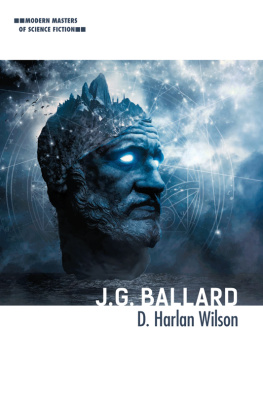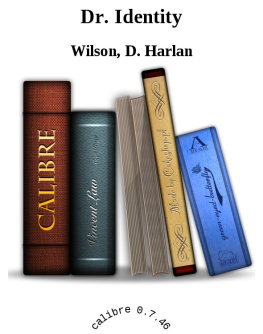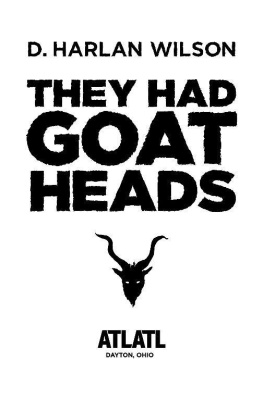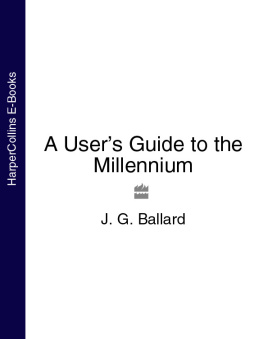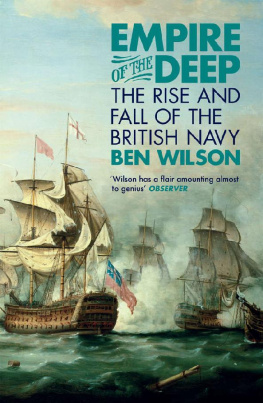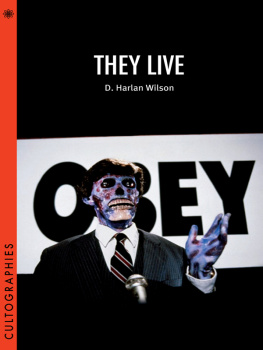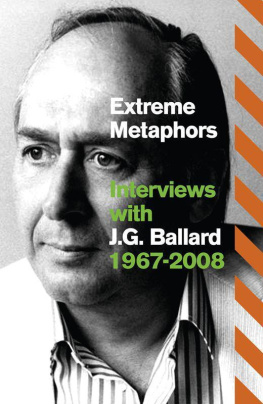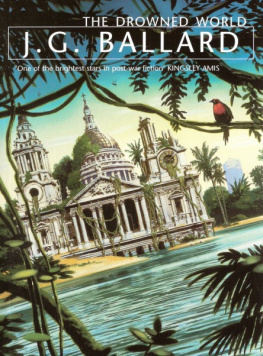J. G. BALLARD
MODERN MASTERS OF SCIENCE FICTION
Edited by Gary K. Wolfe
Science fiction often anticipates the consequences of scientific discoveries. The immense strides made by science since World War II have been matched step by step by writers who gave equal attention to scientific principles, human imagination, and the craft of fiction. The respect for science fiction won by Jules Verne and H. G. Wells was further increased by Isaac Asimov, Arthur C. Clarke, Robert Heinlein, Ursula K. Le Guin, Joanna Russ, and Ray Bradbury. Modern Masters of Science Fiction is devoted to books that survey the work of individual authors who continue to inspire and advance science fiction. A list of books in the series appears at the end of this book .
2017 by the Board of Trustees
of the University of Illinois
All rights reserved
Library of Congress Cataloging-in-Publication Data
Names: Wilson, D. Harlan, author.
Title: J. G. Ballard / D. Harlan Wilson.
Description: Urbana : University of Illinois Press, 2017. | Series: Modern masters of science fiction | Includes bibliographical references and index. |
Identifiers: LCCN 2017017824 (print) | LCCN 2017033297 (ebook) | ISBN 9780252050039 (ebook) | ISBN 9780252041433 (hardback) | ISBN 9780252082955 (paperback)
Subjects: LCSH: Ballard, J. G., 19302009Criticism and interpretation. | Science fiction, EnglishHistory and criticism. | BISAC: LITERARY CRITICISM / Science Fiction & Fantasy. | BIOGRAPHY & AUTOBIOGRAPHY / Literary.
Classification: LCC PR6052.A46 (ebook) | LCC PR6052.A46 Z94 2017 (print) | DDC 823/.914dc23
LC record available at https://lccn.loc.gov/2017017824
CONTENTS
Psychopathologies of Everyday Life:
The Atrocity Exhibition and the Cultural Disaster Trilogy |
ACKNOWLEDGMENTS
This book would not have been possible without the many scholars and friends who provided me with guidance and support. I am particularly grateful to Rick McGrath, David Pringle, and Simon Sellars, maestros of the Ballardian; they responded to my many queries almost before I conceived of them, and their feedback was essential to the accuracy of my information and the development of my ideas, not to mention Simons Ballardian.com and Ricks JGBallard.ca, the two most comprehensive and edifying Web sites on Ballard. Talented critic and novelist James Reich was nice enough to read through an early draft of my manuscript and point me toward clearer skies. Dominika Oramus gave me valuable advice, and Jeannette Baxter, Beatrice Ballard, Mike Bonsall, Dan OHara, James Goddard, Mike Holliday, Umberto Rossi, Pippa Tandy, and David Paddy all corresponded with me in some capacity; I am grateful for their attention as well as the work they have published on Ballard. While I never communicated with them personally, I am indebted to Peter Brigg, Andrzej Gasiorek, Samuel Francis, and Roger Luckhurst, all of whom have written superb books on Ballard that I looked to for inspiration and direction. Additionally, I should mention the Facebook pages devoted to Ballard, where I often encountered some of the aforesaid intelligentsia alongside other enthusiasts, aficionados, and detractors; I learned more here than I ever thought possible.
I performed much of my reading and research during a sabbatical granted to me by Wright State UniversityLake Campus in 2014. Special thanks to the emeritus dean of the campus, Bonnie Mathies, who took a genuine interest in my writing projects and entertained me with stories about deranged librarians.
I must acknowledge the assistance I received from all the University of Illinois Press editors and external readersnamely Willis Regier, who worked with me on my proposal, and Marika Cristofides, who advocated for my manuscript and helped me refine and polish it in the latter stages of the writing process. Julie Gay skillfully honed and sharpened my prose at the end of the line. Commentary from one reader in particular, Gary Westfahl, gave me the insight, acumen, and confidence to map out my critical agenda. Im so appreciative of everybodys time and input.
I cant forget my mentor and friend, Bob Crossley, who introduced me to the study of science fiction when I was working on my M.A. in English at UMass-Boston in the 1990s and set me on the course I have taken in my professional life. These pages would not exist without him.
Finally, Im thankful for my daughters Maddie and Renee. Life took several dark turns for me during the composition of this book, and they invariably brought me hope, joy, and strength. No matter what I do, they are always my foremost inspiration.
J. G. BALLARD

In 1975, J. G. Ballard revealed the working thesis of his stories and novels to date: My fiction is all about one person, all about one man coming to terms with various forms of isolation (Interview, Goddard and Pringle 89). His interest in this theme didnt end in the mid-1970s. It spanned the length of his career, culminating in his autobiography, Miracles of Life . Published the year before his death from cancer in 2009, the autobiography closes the door on a body of work that includes hundreds of stories and essays and nearly twenty novels, not to mention the accumulation of Ballardian scholarship that continues to gain a fierce momentum. The terminal subjects that populate his fictions were often extrapolations of his life as an outsider in prewar and wartime China and later in postwar England. As an author, Ballard was an outsider, too, writing against the codes and norms of the science fiction genre. Beyond the genre, the pathology of American media waged a special influence on his sole -seeking protagonists, who capitulate to the apotheosis of all the fantasies of late twentieth-century manthe transformation of reality into a TV studio (Ballard, The Future 225).
Ballards career spanned six decades. A child of war, his interest in science fiction can be traced back to the destructive technologies of World War II, during which he was interned in a Japanese prison camp. Later he entered the military himself, and his imagination started to churn. In the 1950s he published his first stories in science fiction magazines, quickly distinguishing himself as a unique voice and destabilizing the traditions established by editors like Hugo Gernsback and John W. Campbell and authors like A. E. van Vogt and Isaac Asimov. Instead of hard, heroic space operas, Ballard wrote soft, antiheroic psychodramas.
His early disaster novels reimagined the postapocalyptic subgenre of science fiction. He went on to compose provocative, often inflammatory narratives that experimented with form and reveled in dangerous visions of sexuality, morality, and ontology; works like The Atrocity Exhibition , Crash , and High Rise continue to rouse the rabble even today. He became a figurehead for the New Wave, an avant-garde movement in the genre spun from the wheel of literary modernism and catalyzed by the UK magazine New Worlds . Other authors associated with the New Wave (contemporaneously or retroactively) include Michael Moorcock, M. John Harrison, Brian Aldiss, and John Brunner in the UK, and Harlan Ellison, Philip K. Dick, Ursula K. LeGuin, and Joanna Russ in the US; together they didnt change the face of science fiction, but they did give it a facelift, marshaling it in new directions. In his later, postmillennial career, Ballard fixated on consumer-capitalism and the culture machine, spending the final decade of his life writing almost exclusively about the pathology of rich, technologically overloaded suburbanites in novels like Super-Cannes , Millennium People , and Kingdom Come . Time after time, his characters must come to grips with an implosion of real and cinematic landscapes, whether they are scurrying through the deepest jungles or sunbathing atop the tallest tower blocks. A diegetic uncertainty stigmatizes them, and they experience pain and suffering in concert with liberation, agency, and power. Revered by critics and fans for his prescience, Ballards oeuvre maps the unfolding of the mediapocalypse from the dawn of the Space Age into the twenty-first century.

